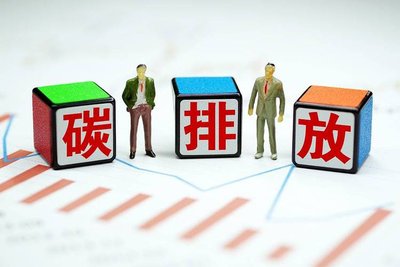The Beijing Municipal Administration for Market Regulation has learned that in order to assist Beijing in building an international benchmark city for green economy, the bureau has issued six green and low-carbon local standards, covering key areas such as carbon emissions, energy consumption quotas, resource recycling, and energy measurement system construction.

In terms of carbon emissions, Beijing has formulated the "Technical Guidelines for Environmental Impact Assessment of Industrial Park Planning - Carbon Emissions", which combines the characteristics of industrial park planning and carbon emission management, clarifies the technical requirements for carbon emission evaluation index construction, carbon emission accounting and analysis, pollution reduction and carbon reduction measures, etc. Taking industrial parks and key industries as the "dual anchor points", carbon emissions are analyzed from energy activities, industrial production processes, waste disposal and other aspects, and management requirements are proposed. This standard promotes the upgrading of planning and environmental impact assessments from traditional environmental impact assessments to collaborative management of "ecological environment protection+climate change response", helping industrial parks incorporate low-carbon concepts in the planning stage, optimize resource allocation, and improve carbon efficiency levels.
In terms of energy consumption quota, Beijing revised the Quota of Energy Consumption per Unit Product of Baijiu and the Quota of Energy Consumption per Unit Product of Synthetic Detergent. The new standard focuses on the calculation, control and management of energy consumption of Baijiu and synthetic detergent production enterprises, and further optimizes the energy consumption quota indicators in combination with the actual production of enterprises.
In terms of recycling, Beijing has formulated the "Technical Specification for the Reconstruction and Utilization of Sludge Products in Mine Soil", which stipulates the requirements for the utilization of sludge products in the process of mine soil reconstruction, environmental tracking monitoring and evaluation, recording and archiving, etc. Currently, the annual production of sludge in the city is about 2.19 million tons, and it continues to grow every year. The release of this standard will help promote the large-scale application of sludge products in mine remediation, reduce the cost of mine remediation, and assist in achieving the "dual carbon" goal. Revise the "Design Specification for Sewage Source Heat Pump Systems", focusing on key aspects such as engineering planning and investigation, sewage heat exchange systems, building systems, monitoring and control. Add requirements for sewage source heat pump system planning, multi energy coupling systems, monitoring and control systems, and improve requirements for sewage source water quality and available water quantity.
In terms of energy measurement, Beijing has formulated the "Technical Guidelines for Coupling Renewable Energy Measurement with Enterprise Energy Use Systems", focusing on the energy measurement levels, energy measurement, renewable energy measurement, and measurement data application of enterprise energy use systems. It clarifies the energy measurement levels of enterprise energy use systems, including graded measurement requirements for energy consuming units, major secondary energy consuming units, and major energy consuming equipment. At the same time, detailed regulations have been established for the measurement methods of solar thermal systems, solar photovoltaic power generation systems, heat pump systems, wind power generation systems, biomass energy systems, and hydroelectric power generation systems.
In addition, the standard also specifies two major application directions for renewable energy measurement data: one is for enterprise energy auditing, analyzing the usage and proportion of renewable energy, and helping enterprises optimize their energy structure; The second is used for enterprise carbon footprint accounting and certification, analyzing the emission reduction and carbon emission factor changes after renewable energy replaces traditional energy, and optimizing the enterprise's carbon reduction strategy and path.
Mobile phone:+86-0516-87631319
Phone:+86-15651461419
Mailbox:3966142672@qq.com
Address: No. 20 Zhenxing Avenue, Xuzhou Economic and Technological Development Zone, Jiangsu Province